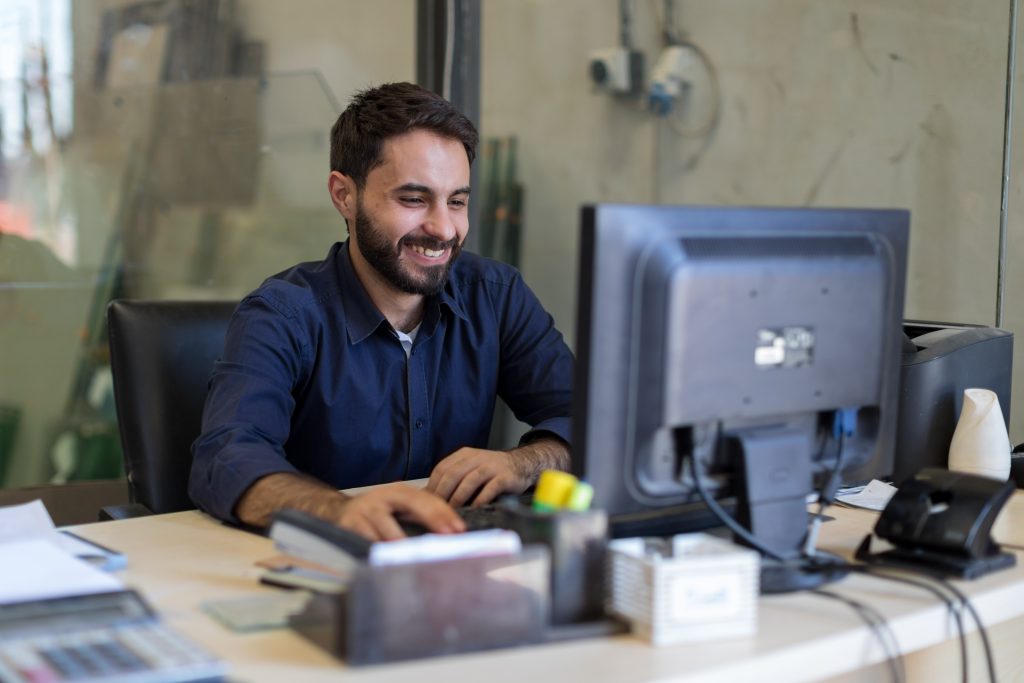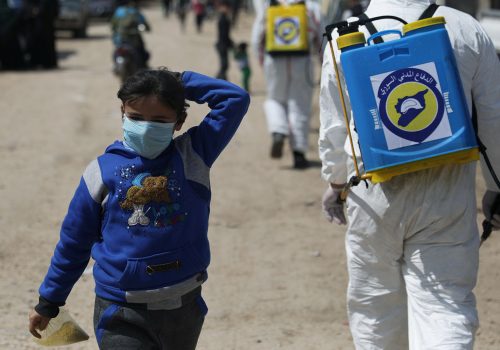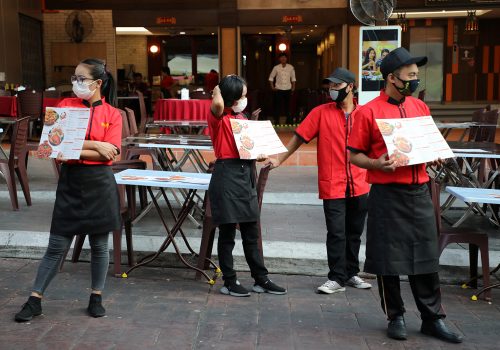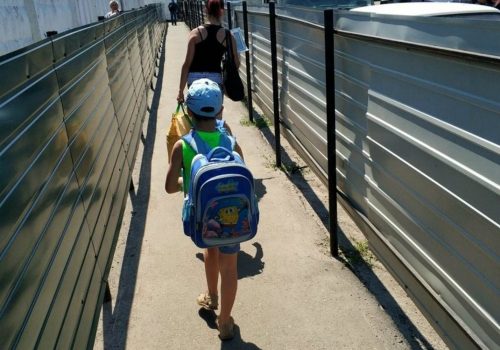The spread of the novel coronavirus (COVID-19) has presented the world with a series of challenges that can deepen inequalities across societies, but also (or maybe especially) in the world of education, which is now forced to move into the online realm. COVID-19, however, also gives us the opportunity to increase the quality and access to education for the world’s most vulnerable young people. The impact of new, digital innovations on the education of thousands of young refugees is huge and demands our urgent attention.
The challenges of online education are well documented—the inability to instantly ask questions, to discuss, to highlight, to confer with classmates—and they all contribute to a somewhat static experience. This adds to the loss of a quiet and stable work environment, with a desk, a proper chair, a laptop, and working internet. And even then, as many are experiencing during this pandemic, it’s harder than usual for students to focus and remain disciplined.
Millions of students in Turkey are facing these same challenges. The government closed all schools and universities on March 16, and they will remain closed until at least April 30—and probably longer. All classes, the Turkish government announced, would from that moment on be given online. The same has happened in other countries in the region, with Lebanon, Jordan, and Iraq all closing down their schools in March as well. These countries all also have large numbers of (primarily Syrian) refugees—a group that was already severely disadvantaged when it comes to education. In obtaining education, refugee youth must face language barriers, high (tuition) fees, and often are not able to utilize their previous diplomas and certificates (many were lost or destroyed in the Syrian civil war).
Since 2015, SPARK (a Dutch nongovernmental organization established in 1994) has been rolling out higher education scholarships for refugees in the Middle East, which aims to tackle these challenges by providing financial and psychosocial support and entrepreneurship and economic empowerment trainings. The ability to work toward your future, to be able roll up your sleeves and to be able to contribute to the society you’re living in, are opportunities that are easily taken for granted.
The current crisis is adding an extra challenge for refugee youth, namely the closure of schools and universities and transitioning education online. Of course, students everywhere in the world are dealing with this, but those with more stable environments have stronger means to support this transition. The fact that education is not the “great equalizer of the conditions of men,” as we once hoped, was famously expounded on by the French sociologist Pierre Bourdieu (1930-2002) through the concept of social capital. In short, this concept explains how it’s possible that two equally intelligent students are not necessarily equally successful at school. What matters is the (socioeconomic) environment you grow up in, (in)stability in family life, the support you get from your parents or others, and many other factors. A recently held survey by SPARK amongst its scholarship students showed that 35 percent don’t have a suitable place to study. However, the survey also revealed that 77 percent have access to a smartphone and 71 percent have regular internet access.
Omran, who is an IT student at Cihan University in the Kurdistan Region of Iraq said that “before COVID-19, I was preparing to get a master’s degree by going to India, as well as doing my day-to-day study. Unfortunately, my life has been affected a lot. My university is closed, leaving us away from education, as our country is not ready for online education. The shortage of food and living in a big quarantine also affects our psychology.”
In the survey, a vast majority of the students indicated they don’t necessarily need additional financial help, rather they asked for psychosocial, academic, and practical support, which is why SPARK and its partners in the region are now providing students with the right tools to study online (such as data packages and internet-enabled tablets in some cases), online psychosocial support sessions, and training for university professors on how to deliver effective online classes. Continuing this support is crucial for enabling students to successfully graduate and enter the labor market, as employees or entrepreneurs.
Notwithstanding the practical challenges, the current circumstances provide a unique opportunity to fast-track traditional university curricula into the modern-day. The means to educate the young and ambitious are swiftly expanding: pre-recorded video, interactive online presentations, digital assessments. Blended learning (online and face to face) and distance learning opportunities, optimized for mobile, are an important next step for reaching the most vulnerable populations without ability to travel, even beyond the COVID-19 lockdowns.
Access to new technologies and additional digital skills training are of the essence and will require some additional government and civil society support to fast track. This may include support on the development of curricula that can be delivered online and in responding to market demand. Some students and universities will require platforms, internet access, or equipment to allow for distant learning. This is particularly important to make sure no one is left behind, including refugees.
Robert Feller is with the nongovernmental organization SPARK. Follow them on Twitter @SPARKorg.
Further reading:
Image: ©2018 Tom Nicholson. 24/06/2018. Amman, Jordan. Ahmad Almasri, 26, is a Syrian Palestinian and came to Jordan in 2013 to seek refuge from the war in Syria. He participated in SPARK internship in Jordan, and was offered a two month internsip at the ITTIHAD Insulating Glass Company. At first he assisted in the warehouse, shipping the treated glass panels to various clients across the Middle East and North Africa. Within months ITTIHAD offered Ahmad a full time administration position, due to his management skills. Photo credit : Tom Nicholson. Copyright belongs to SPARK.




